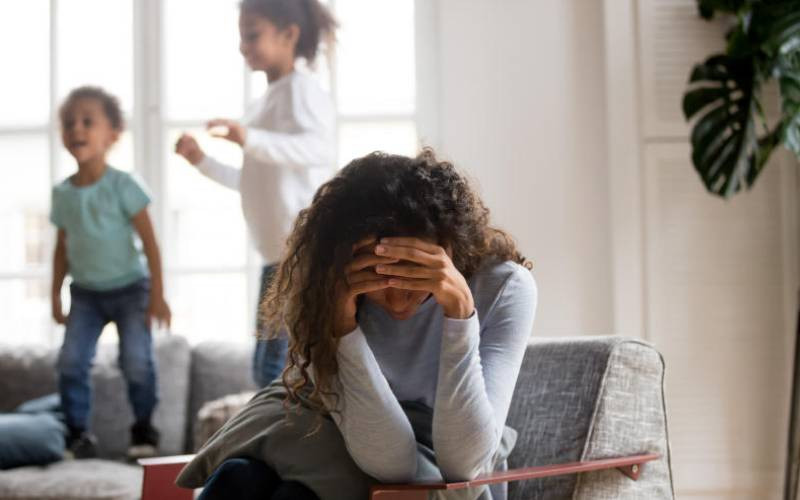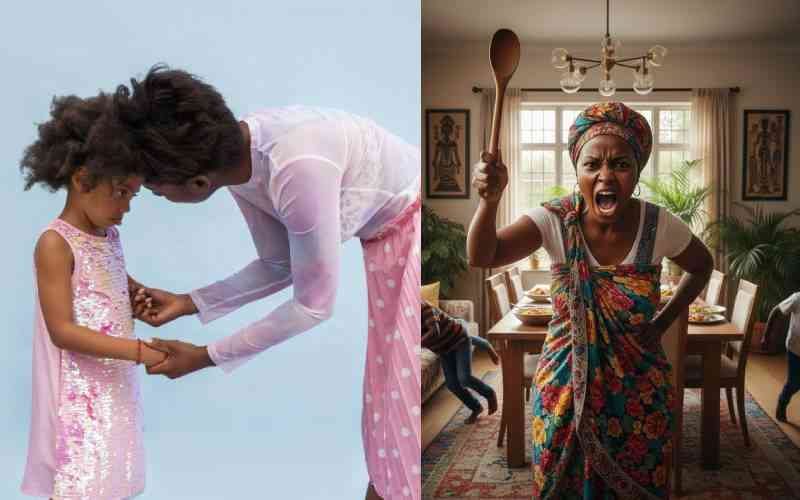
It's not easy, but Dr Lucy Maddox explains how talking about sex to our children, and doing it well can make all the difference
We have small talk down to a fine art, and observations about the weather are practically a national past time.
Talk to us Brits about sex and our bodies however, and we tend to either turn puce and change the subject, or, at the other end of the scale, come over all 'ooh matron'.
Yet a healthy attitude towards our bodies, towards sex and sexuality is something which, ideally, should be fostered in childhood.
But while many of us remember that seminal moment when we were given 'the talk', it can be with awkwardness and embarrassment for ourselves and for whoever had to put up with the stifled giggles and determined lack of eye-contact.
So is telling our children about sex - and as often as required - something worth doing well
According to consultant clinical psychologist Dr Lucy Maddox, absolutely.
However, there is a lot of pressure on parents to 'get it right', and in recognition of this, Dr Maddox has shared her wisdom with Mirror online about tackling the tricky 'birds and the bees' topic.
1. Starting young is normal
One thing to bear in mind is children are aware of and quite interested their privates at a very early age - they play with themselves.
For them, it's more about sensual exploration than in a sexual sense. They're exploring their own bodies, but without the sexual overtones adults use.
Children are becoming more aware of sex through mediums like films and shows
Awareness about sex however can occur a lot younger than we think.
Children are becoming more aware of things on TV etc. We live in a sexualised society, so for them it is a gradual realisation.
2. Nicknames, or calling a spade a spade?
As for being euphemistic about genitals / using nicknames for them, each parent will have a different view and that's OK.
Personally, if we can use the correct anatomical names without embarrassment our children will feel it's not anything shameful or taboo.
The more they see sex and their bodies are normal, the more they will feel like they can come and talk to you about issues or questions they may have.
3. In the long run
As for the positive psychological effects of being open about sex with our children, there are lots.
By being open with your children, they are less likely to go through an unwanted pregnancy
In a practical sense, the more forthcoming we are, the less likely our children are to go through unwanted pregnancies or experience STIs - and they actually wait a little longer before having their first sexual partner.
Taking away a sense of shame and wrongness can help their self-esteem, making them confident in their bodies.
4. However
But there is a pressure on parents. It can be very scary having the 'big chat'.
Yet it needn't be just one discussion which crams everything in, it's about having a lot of discussions, an ongoing discourse.
5. Getting flustered
One crucial thing to remember is that children will instantly tell if a parent is struggling or feeling acutely embarrassed .
So find a language which feels comfortable for you, while being as accurate as possible and appropriate to them.
Frustrated woman
6. Sex is also about context - not just biology
With older children, think about how sex fits into relationships.
Sex education in this country is more about biology than context. The more you can talk to adolescents about boundaries, love and relationships, the greater chance they have of developing a healthy outlook.
7. Girl talk and boy chat
When these discussions occur, I am not sure we should be tailoring these discussions to our sons and to our daughters.
Girls and periods, boys and wet dreams, if we modify what we say according our child's gender then everything gets cloaked in mystery, which isn't very helpful.
Additionally, when talks about sex can be tied in with context, issues like consent should be broached with both boys and girls.
Address the same topics with both boys and girls
8. I've messed up / it feels too soon
Don't put too much pressure on yourself. If you feel like you've made a mess of it, just go back and do it again.
9. Vocabulary to avoid
When we feel uncomfortable, we rely on obscure words and metaphors.
Think about why you feel uncomfortable.
Needless to say, any words or terms with negative connotations are to be avoided, as in the long run, these can lead to children feeling ashamed and dirty.
10. There are lots of different types of relationship - not just heterosexual ones
When talking about sex, the focus is often just on heterosexual relationships. But the more we can bring the in the idea of lots of different types of parents, families and relationships, the more they're normalised.
 The Standard Group Plc is a multi-media organization with investments in media
platforms spanning newspaper print
operations, television, radio broadcasting, digital and online services. The
Standard Group is recognized as a
leading multi-media house in Kenya with a key influence in matters of national
and international interest.
The Standard Group Plc is a multi-media organization with investments in media
platforms spanning newspaper print
operations, television, radio broadcasting, digital and online services. The
Standard Group is recognized as a
leading multi-media house in Kenya with a key influence in matters of national
and international interest.










